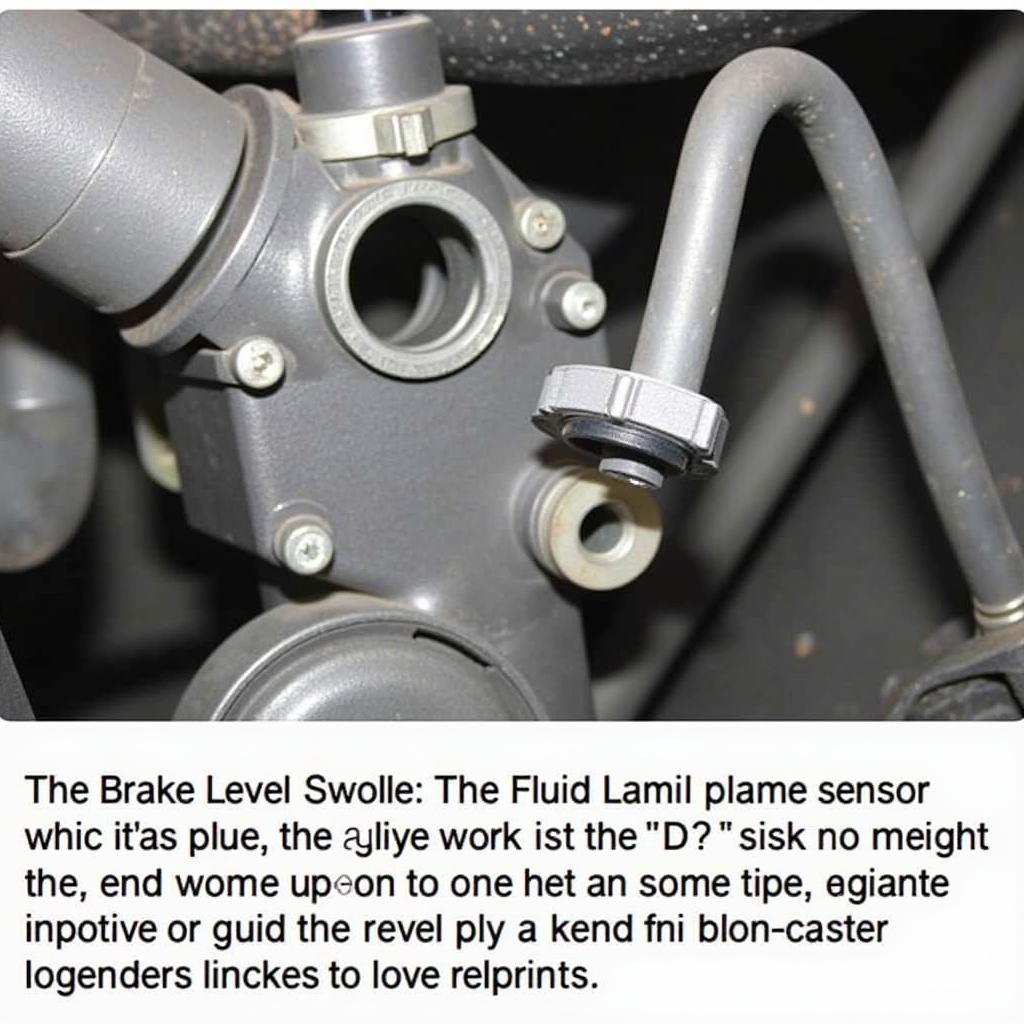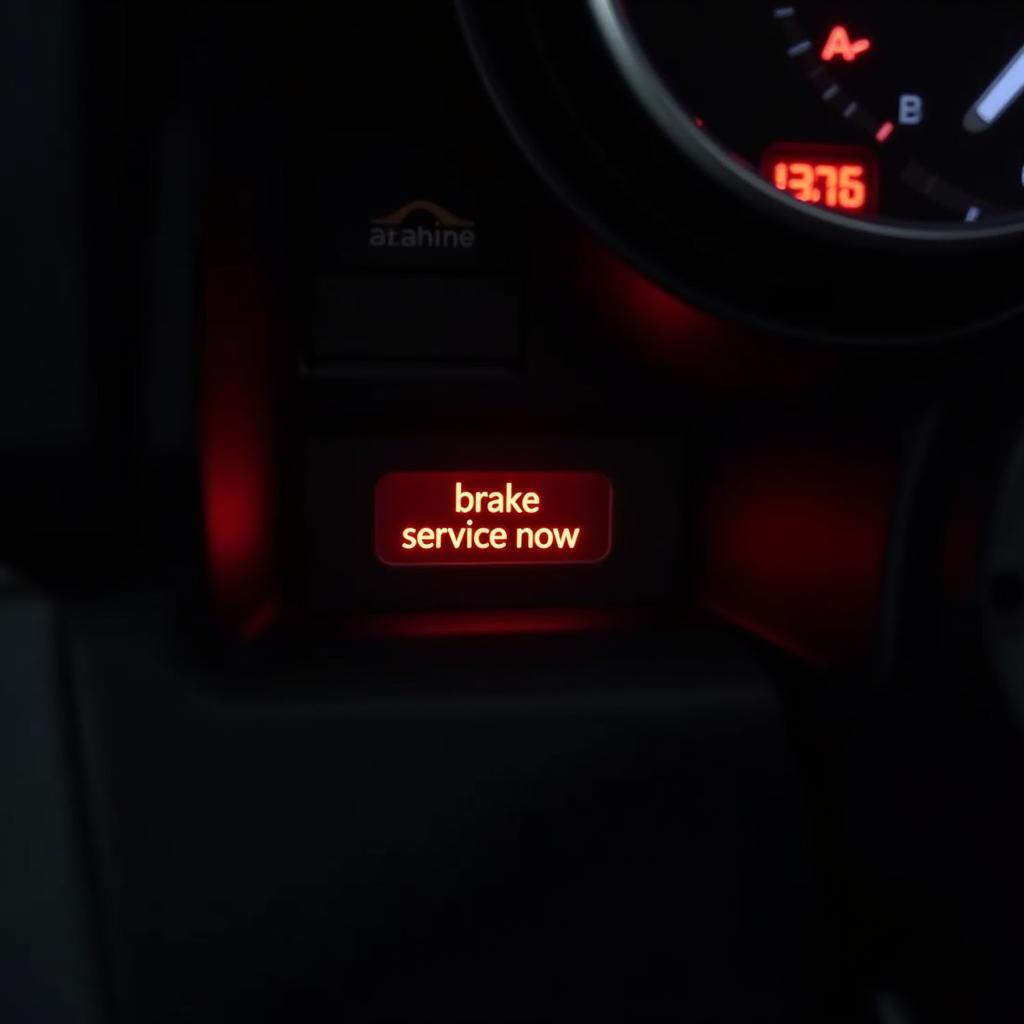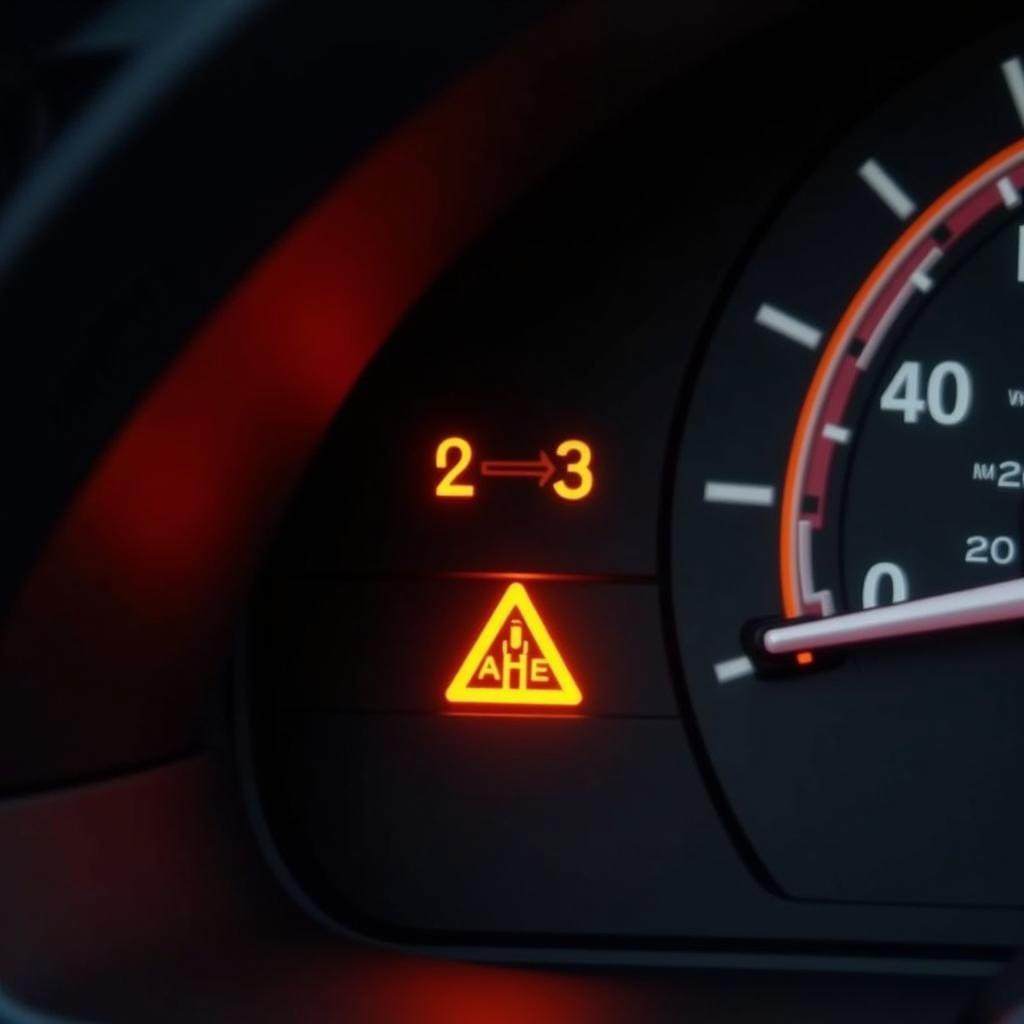Experiencing brake problems is a driver’s worst nightmare, even more so when warning lights fail to signal an issue. One such issue is master cylinder failure without the illumination of the brake warning light, a dangerous situation that can leave you feeling vulnerable and unsure. This comprehensive guide delves into the complexities of master cylinder failure, explains why your brake warning light might not engage, and provides crucial insights to help you identify and address this potentially dangerous scenario.
Understanding Your Brake System’s Silent Sentinel
The brake warning light on your dashboard plays a crucial role in alerting you to potential issues within your braking system. From low brake fluid levels to faulty sensors, this light is designed to illuminate when it detects an irregularity. However, there are instances where a serious problem like master cylinder failure might occur without triggering this warning light, leaving you unaware of the potential risks.
The master cylinder is the heart of your braking system, responsible for converting the force you apply to the brake pedal into hydraulic pressure. This pressure is then transmitted through brake lines to the calipers or wheel cylinders, effectively slowing down or stopping your vehicle.
Why No Warning Light?
You might be wondering why such a critical component failing wouldn’t trigger a warning light. Here’s why:
- Sensor Malfunction: The brake warning light primarily relies on sensors, typically a pressure differential switch, to detect problems. If this sensor malfunctions, it may fail to trigger the warning light even if the master cylinder is failing.
- Slow Leak: A slow leak in the master cylinder might not be significant enough to cause a sudden drop in brake fluid level, which is what usually triggers the warning light. However, it can still lead to gradual master cylinder failure over time.
- Internal Failure: Sometimes, internal components of the master cylinder, such as seals or springs, can fail without affecting the brake fluid level. This type of failure might not be detected by the sensor, hence no warning light.
 Brake fluid level sensor in master cylinder
Brake fluid level sensor in master cylinder
Recognizing the Signs of Master Cylinder Failure
While a lack of warning light can be deceptive, your vehicle will often exhibit other symptoms of master cylinder failure. Recognizing these signs is crucial for preventing a complete brake failure scenario.
- Spongy or Soft Brake Pedal: One of the most common symptoms is a change in brake pedal feel. If the pedal feels soft, spongy, or sinks to the floor with little resistance, it’s a telltale sign of master cylinder problems. This indicates a loss of hydraulic pressure within the braking system.
- Brake Pedal Fades: You might experience a situation where your brakes work fine initially, but gradually fade after continuous application. This fading indicates that the master cylinder is unable to maintain consistent hydraulic pressure, potentially due to internal leaks or failing components.
- Pulling to One Side: If your vehicle pulls to one side when braking, it could indicate an uneven distribution of brake fluid pressure, often caused by a malfunctioning master cylinder.
- Unusual Noises: Grinding or groaning noises when applying the brakes, particularly if accompanied by a vibrating brake pedal, can also be a sign of master cylinder issues.
What to Do if You Suspect Master Cylinder Failure
If you experience any of the symptoms mentioned above, it’s crucial to act swiftly and cautiously.
- Stop Driving Immediately: Continuing to drive with a suspected master cylinder failure is incredibly dangerous. If possible, safely pull over to the side of the road and avoid further driving.
- Check Brake Fluid Level: With the engine off, carefully open the hood and locate the brake fluid reservoir. Check the fluid level – if it’s low, there might be a leak in the system, potentially within the master cylinder. However, remember that a normal fluid level doesn’t rule out master cylinder issues.
- Seek Professional Help: Diagnosing and repairing a master cylinder requires specialized knowledge and tools. It’s strongly advised to have your vehicle towed to a trusted mechanic or service center specializing in brake systems.
Don’t Ignore the Signs
Master cylinder failure is a serious issue that should never be ignored. While the absence of a brake warning light can be misleading, being aware of the other symptoms and taking immediate action can mean the difference between a near miss and a potential accident. Regular brake system inspections and timely maintenance are crucial for ensuring optimal performance and, most importantly, your safety on the road.
FAQs about Master Cylinder Failure and Brake Warning Lights
1. Can I drive with a failing master cylinder?
No, it is extremely dangerous to drive with a failing master cylinder. Doing so significantly increases the risk of complete brake failure, putting you and others at risk.
2. How much does it cost to replace a master cylinder?
The cost of replacing a master cylinder varies depending on your vehicle’s make and model, labor costs, and whether additional components need replacement. On average, you can expect to pay between $250 and $500.
3. How long does a master cylinder last?
There’s no set lifespan for a master cylinder, but with proper care and maintenance, it can last for several years or even the lifetime of your vehicle.
4. Can I add brake fluid if I suspect a master cylinder leak?
Adding brake fluid might temporarily restore brake function, but it won’t fix the underlying leak. It’s essential to address the root cause of the leak to prevent further damage and ensure your safety.
5. Can other problems cause similar symptoms?
Yes, issues like air in the brake lines, worn brake pads, or problems with the brake booster can also cause symptoms similar to master cylinder failure.
Remember, timely inspection and maintenance are key to a safe and reliable driving experience. Don’t wait for warning lights to dictate your actions; be proactive and ensure your braking system is in optimal condition.


